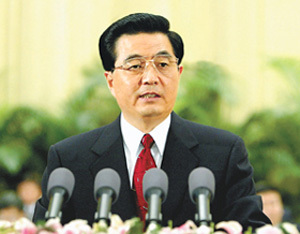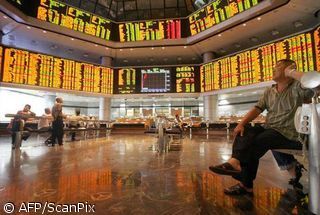It is the only source that can provide a chance for economic breakthrough
Published:
21 March 2005 y., Monday
Money from Russia’s Stabilisation Fund is expected to be invested abroad in dollar-nominated securities, with minimum investment risks and minimum profitability at 2-4%. These funds have until now been kept in Central Bank accounts. This means that a great deal of money will soon appear on the financial markets. On February 1, 2005, the Fund totaled 647.2 billion roubles ($23.1 billion), which mostly came from taxes on oil sales with prices exceeding $20 per barrel and export duties from oil companies.
The crucial question is how this money should be used. Money can only be taken out of the Fund when it has more than 500 billion roubles. Therefore, more than a fifth of its resources can already be used. This is a key issue for Russia’s economy, as the positive overseas market situation in recent years has been almost exclusively responsible for its growth.
However, experts are not tired of repeating that the potential of the resource-oriented Russian economy has been virtually exhausted. The mechanism whereby "we produce oil, sell it and enjoy the benefits" is becoming increasingly less effective. The country is now at a stage when it must introduce an industrial policy. However, any policy only makes sense when there is money to implement it.
Russia’s stock market and banking system do not provide the necessary financing for the real sector of the economy. Direct foreign investment in Russia remains at a very low level, while foreign investment in general is concentrated on either the import of equipment or foreign borrowings. The country obviously needs sources for further growth. The Stabilisation Fund is virtually the only potential source today and a genuine war is being waged for its funds.
Šaltinis:
financialexpress.com
Copying, publishing, announcing any information from the News.lt portal without written permission of News.lt editorial office is prohibited.
The most popular articles
 The European Commission has approved under EC Treaty state aid rules a Latvian support scheme to stabilise financial markets by providing guarantees to eligible banks to ensure their access to financing.
more »
The European Commission has approved under EC Treaty state aid rules a Latvian support scheme to stabilise financial markets by providing guarantees to eligible banks to ensure their access to financing.
more »
 Gathering in Beijing, China's political elite gather to celebrate three decades of China's economic reform and market liberalisation.
more »
Gathering in Beijing, China's political elite gather to celebrate three decades of China's economic reform and market liberalisation.
more »
 After two days of intense negotiations, European leaders reached agreement on how to achieve the EU’s ambitious climate change goals and endorsed a €200bn plan to revive the flagging EU economy.
more »
After two days of intense negotiations, European leaders reached agreement on how to achieve the EU’s ambitious climate change goals and endorsed a €200bn plan to revive the flagging EU economy.
more »
 Detroit won't get its bailout, as the U.S. Senate blocked the measure to rescue America's big three car makers.
more »
Detroit won't get its bailout, as the U.S. Senate blocked the measure to rescue America's big three car makers.
more »
 The world is facing “an acute food crisis”. That was the verdict of a report adopted by MEPs in the Agriculture Committee on 8 December.
more »
The world is facing “an acute food crisis”. That was the verdict of a report adopted by MEPs in the Agriculture Committee on 8 December.
more »
 The European Commission has agreed a Communication that aims to improve the functioning of the food supply chain in order to lower prices for consumers.
more »
The European Commission has agreed a Communication that aims to improve the functioning of the food supply chain in order to lower prices for consumers.
more »
 The World Bank's 2009 Global Economic Prospects report is projecting world growth will shrink to 0.9 percent next year.
more »
The World Bank's 2009 Global Economic Prospects report is projecting world growth will shrink to 0.9 percent next year.
more »
 Prospects for a federal aid package to help the US auto industry advanced on Monday.
more »
Prospects for a federal aid package to help the US auto industry advanced on Monday.
more »
 A new report from Aite Group LLC explores possible regulatory and legislative responses to the current financial crisis, with particular attention paid to three key topics: consumer lending, risk management and deposit relationships.
more »
A new report from Aite Group LLC explores possible regulatory and legislative responses to the current financial crisis, with particular attention paid to three key topics: consumer lending, risk management and deposit relationships.
more »
 A new report from Mercator Advisory Group's Retail Banking Practice focuses on the ATM and the multifaceted role it plays in the retail banking market.
more »
A new report from Mercator Advisory Group's Retail Banking Practice focuses on the ATM and the multifaceted role it plays in the retail banking market.
more »